If you dream of a career immersed in the equestrian sports performance industry, this degree is for you.
This course focuses on the athletic performance of horse and rider and preparing students for a career in equestrian performance, coaching or team performance management.
With the UK equestrian sector generating £4.7 billion of consumer spending, 3 million regular riders, nearly one million resident horses and 6.4% of the equestrian population being within a competitive club (BETA, 2019), there has never been a better time to pursue a career in the equine sports performance industry.
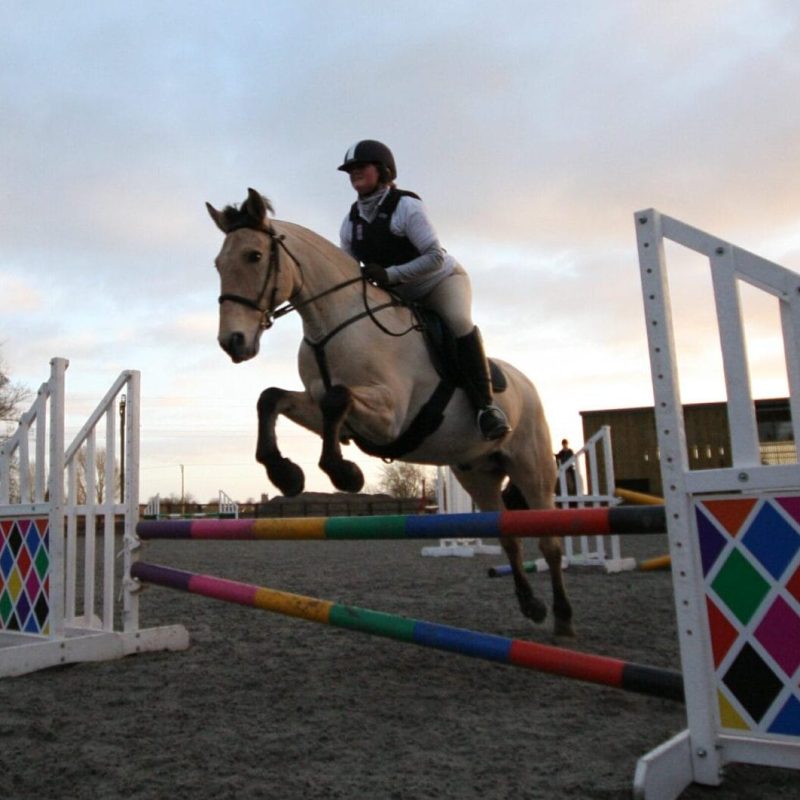
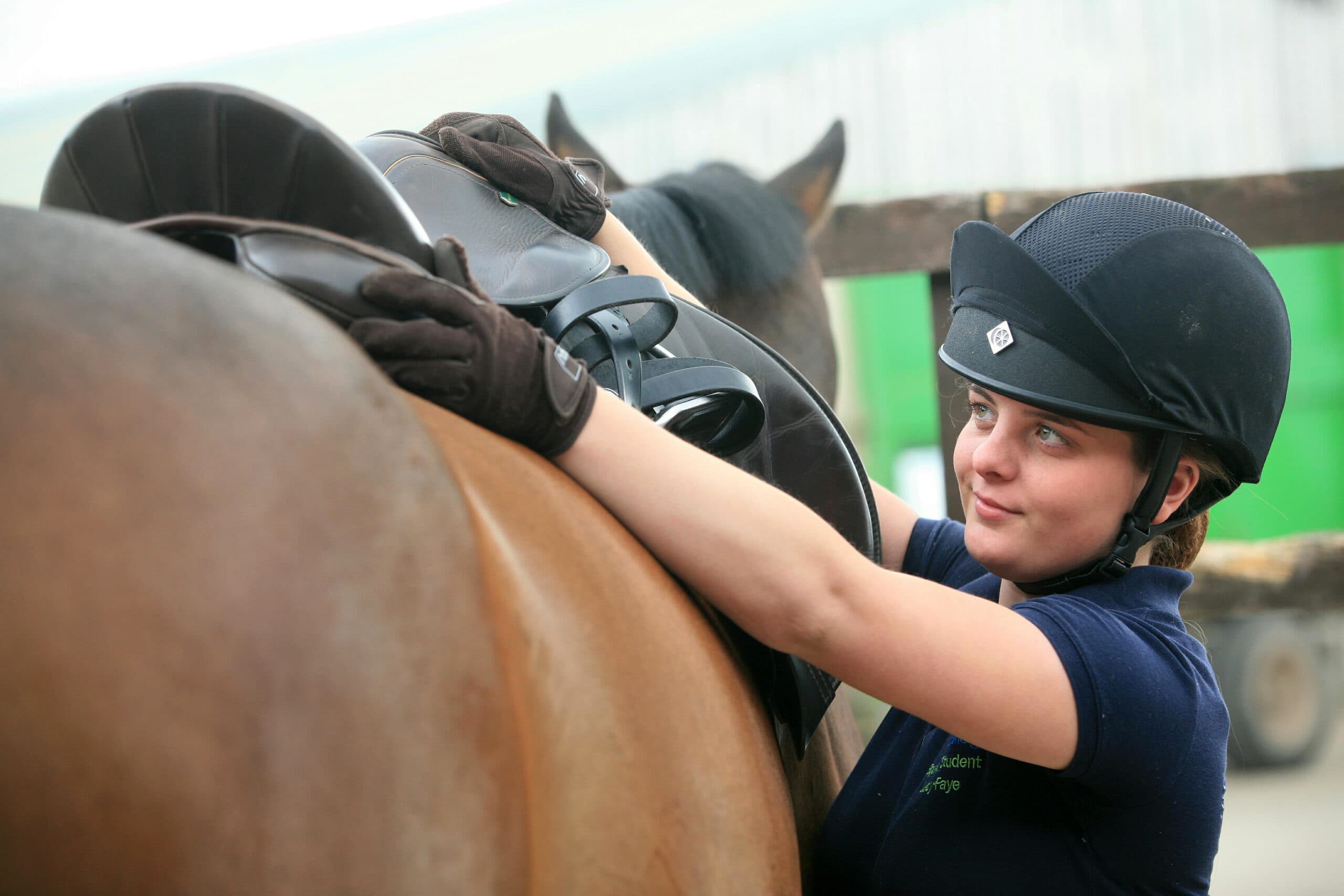
Thanks to our strong industry partnerships, graduates will not only have the necessary combination of knowledge, skills and experience but will graduate as career ready individuals able to contribute to the success and growth of the equestrian performance industry.
As a student on this course, you may be eligible to complete a 1-year Industry Placement between your second and final year of study, giving you the opportunity to gain substantial industry experience and kickstart your career. To be eligible for this, you must achieve a pass grade above 50% in your second year of studies.
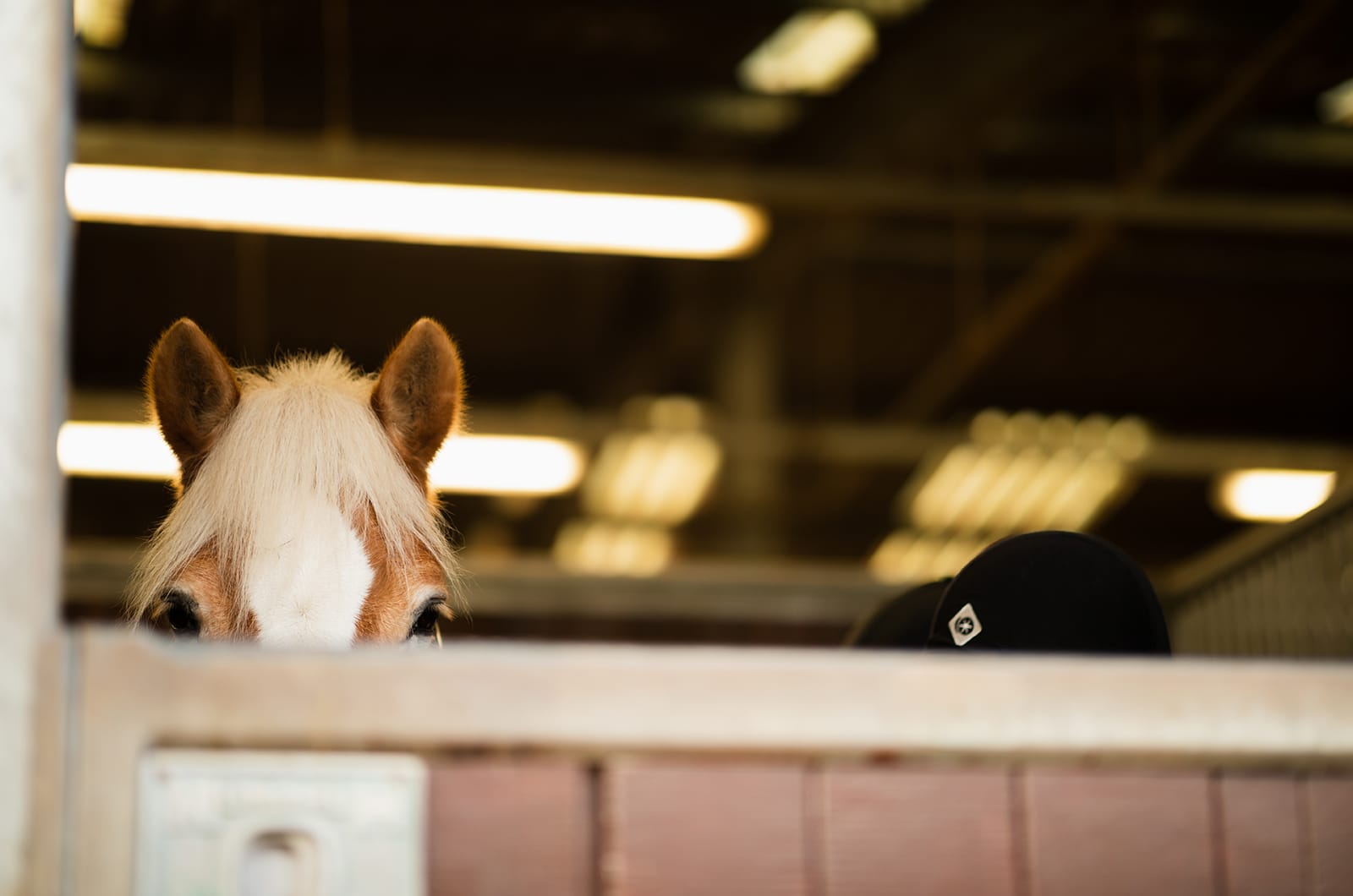
* will incur additional costs
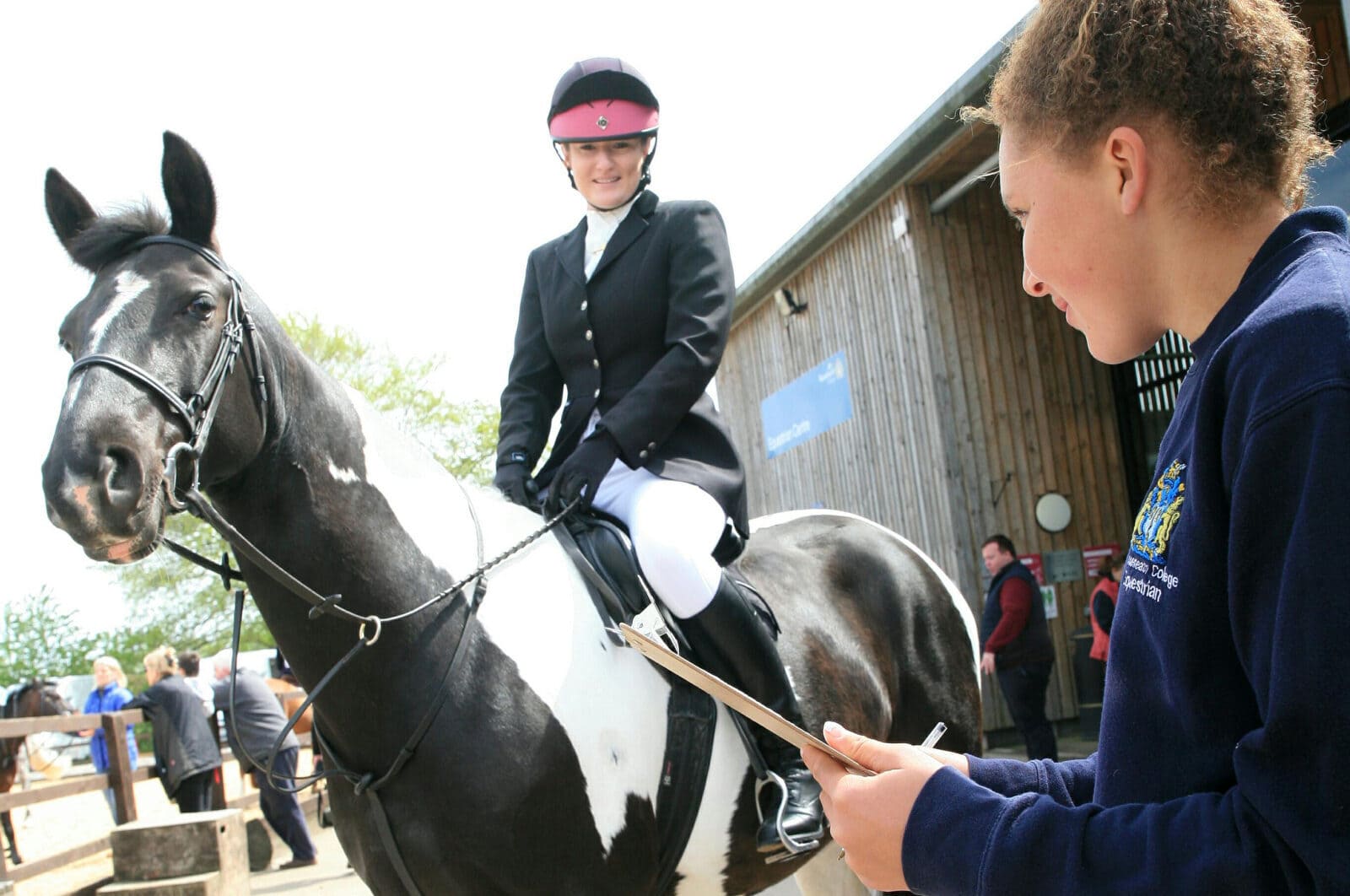
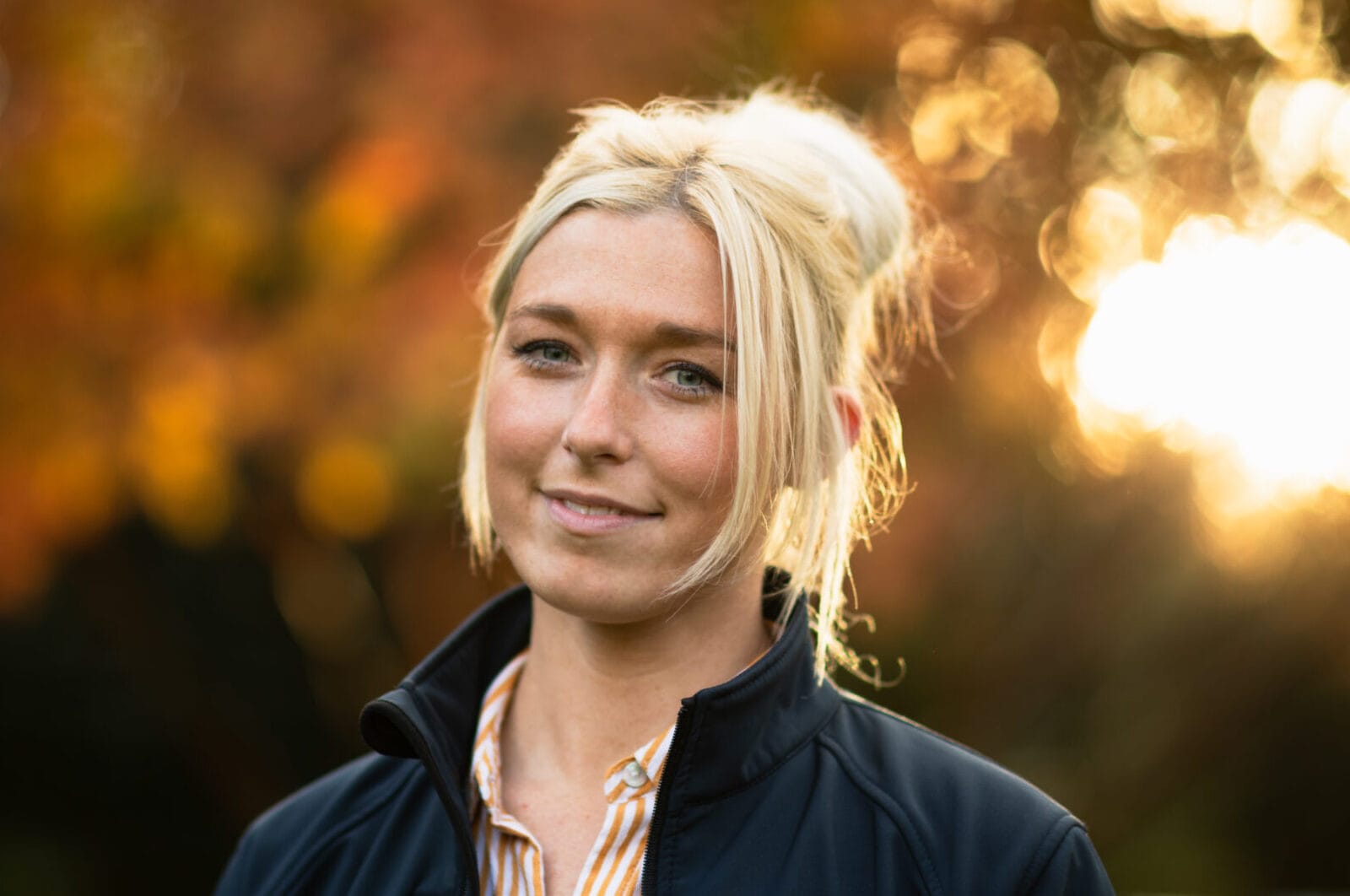
Lecturer and Course Manager Bethany Greenshields explains more about what you will do on the rewarding BSc (Hons) Equestrian Sports Performance degree programme and some of the careers you could go on to when you graduate.
The ESP programme is directed towards the competitive rider who wishes to extensively explore the area of sports performance equally divided between the human and equine athlete over the course of the three years.
Optional
Choose two optional modules
Optional
Choose two optional modules
The programme is designed to allow the students to have options at all levels that would ideally reflect their chosen career path upon graduation. On this degree you will study:
Optional modules are normally chosen during March of the academic year to then be delivered the following academic year.
Incoming students are requested to choose their modules online via the University of Chester portal before commencement of their degree.
Modules will need to have a minimum of 6 students for them to be offered for delivery.
Overall workload
Your overall workload consists of class contact hours, independent learning and assessment activity, plus field trips. Your actual contact hours may depend on which optional modules you select, but the following information gives an indication of how much time you will need to allocate to different activities at each year of the course:
Year 1:
30% of your time is spent in timetabled teaching and learning activity
Teaching, Learning and Assessment: 360 hours
Independent Study: 840 hours
Year 2:
21% of your time is spent in timetabled teaching and learning activity
Teaching, Learning and Assessment: 260 hours
Placement: 150 hours
Independent Study: 780 hours
Year 3:
14% of your time is spent in timetabled teaching and learning activity
Teaching, Learning and Assessment: 170 hours
Independent Study: 1030 hours
Class sizes vary depending on module being studied. Some shared modules may be taught in large groups in the lecture theatre although most will be taught in groups up to 30 students.
Assessment Methods
Assessments are designed to encourage both academic skills and skills valued in the workplace. They include a combination of coursework and timed online assessments. Coursework may take many forms including: essays, reports, data processing, presentations, academic posters, seminar discussions, interviews, critical reviews, portfolios of evidence and practical competency assessments. The timed online assessments vary, depending on the nature of the module and level of study, but may take the form of multiple-choice papers, essays, practical assessments, data handling questions, and short answer quizzes.
The balance of assessment by timed online assessment and assessment by coursework depends to some extent on the optional modules you choose. The approximate percentage of the course assessed by coursework is as follows:
Year 1
42% coursework
37% timed online assessments
22% practical
Year 2
66% coursework
28% timed online assessments
6% practical
Year 3
70% coursework
14% timed online assessments
16% practical
Feedback
Opportunities for feedback on your progress will be available throughout your course. This will be provided in many formats, including written and verbal. Feedback on graded work is supplied online via Turnitin or directly from the module tutor. The majority of assessment submissions are made online via Turnitin and feedback for coursework is provided within 20 working days after the submission date.
Written feedback will be supported verbally should the student require clarification. Formative assessment feedback will be provided at the time of completion where possible, with more detailed summative feedback for reports.
Timetables will be distributed during induction week.
Students will be expected to attend all timetabled sessions. In years 1 and 2 sessions are typically timetabled 3 to 3.5 days per week and in year 3 they are timetabled over 2 to 2.5 days per week.
Students have the option of completing the level 5 module ‘Work Based Learning for the Land Based Industries’ module which includes 150 hours of work-based industry placement and professional development.
Students studying the alternative ‘RC5508 Experiential Learning’ module may also undertake industry-based placements as part of their experiential learning.
The responsibility of finding a suitable placement lies with the student who is also responsible for any financial cost associated with such placement.
To safeguard the wellbeing of our horses, comply with health and safety requirements, ensure high levels of animal welfare and ensure a high-quality student experience we have to make an assessment of who can ride our horses safely, and this is based on a number of factors. These factors can impact on our decisions regarding which students are able to ride as part of their course.
Current research from the Saddle Research Trust and Animal Health Trust with leading equine professionals, scientists and researchers has advised that horses should only be carrying 10- 20% of their own optimum bodyweight when being ridden, this includes the clothing and tack used. If carrying over 20%, there is a substantial effect on the horse’s gait, behaviour, soundness and welfare in response to rider weight.
The pool of horses that we have access to at the College does fluctuate each year, but we try to ensure that their general size, age and health are reasonably constant within an agreed tolerance, to appeal to and accommodate as many students as possible. However, this does mean that for some students who are at either end of the optimum height and weight for our horses, we may not be able to allow them to ride safely as part of their course. General guidelines for height/ weight ratios can be found below, however, this is used as a guide and are only one part of a holistic assessment of the individual for riding. An experienced and qualified member of staff will assign horses to students for riding and rider height and weight will be considered to ensure both horse welfare and the health and safety of the individual.
Rider weight guidelines:
Height | Weight (st) | Weight (kg) |
Up to 4’10” | 9 | 57 |
4’11” – 5’2” | 10 | 64 |
5’3” – 5’6” | 11 | 70 |
5’7” – 5’9” | 12 | 76 |
5’10” – 6’1” | 13 | 82.5 |
6’2” – 6’4” | 14 | 89 |
6’5” upwards | 15 | 95.2 |
Whilst rider height, weight and fitness are factors in our riding assessment, it is important that students do not view this as any prompt to eat or diet unhealthily.
The main factors we have to consider when assessing suitability of riders in the Equestrian Centre are:
Our rider assessment involves an initial questionnaire to be completed by the student, which will evaluate rider experience. Following successful acceptance of the initial paper assessment, students will need to attend a holistic Ride Standard Setting Session to assess student riding ability on the mechanical horse. If riding skills are suitable, students will then progress to an assessment on a live horse, with extensive feedback provided by one of our BHS coaches.
Interviews may be used to help make decisions on applications, mature applicants and those where further information is required.
Tuition Fees
As a student at UCR, you will have two main costs to meet; your tuition fees and living costs.
Our full-time tuition fees for UK and EU students, entering University, can be found on our student finance page. These fees are charged for each academic year of a course and are set by the college annually.
Tuition fees for international students can also be found on our student finance page.
Additional Costs
Study Tours
Optional study tours may be organised by your course team. Costs vary depending on location, duration and activities although have typically cost £350 in previous years.
Equipment costs
Equestrian yard uniform, consisting of grey jodhpurs and a grey polo shirt, is expected to be worn for all practical sessions. Branded UCR polo shirts are available through the UCR online shop for approximately £15.
Students would be expected to provide their own PPE with minimum riding hat standard of PAS015, Level 3 (Blue; 2018) body protector (for jumping if riding) and suitable leather riding boots (not chaps). Students should also be prepared to purchase riding gloves and a waterproof coat without a hood.
You can expect equipment costs to be in the region of £300 depending on brand and retailer.
Lab coats are provided however students can purchase their own if preferred.
You may wish to take the opportunity to undertake additional training and qualifications such as British Horse Society (BHS) qualifications. These will be an additional cost to the degree.
The equine centre hosts a range of riding clinics and affiliated and unaffiliated equestrian sporting events in a range of disciplines. These events are usually an additional cost and are typically £10-£50.
Apply directly through UCAS
BES1
A minimum of 112 UCAS points
September 2024 September 2025
Full-time: 3 years
Here you will find useful information about the services and support available at University Centre Reaseheath. Click to expand each item:
University Centre Reaseheath is committed to providing additional financial support to those who need it. To find out about the bursary schemes available visit the additional financial support pages.
For students to get the best out of their time at University Centre Reaseheath, we must both recognise that we owe obligations to each other. These obligations are set out in our UCR Student Contract. Before you accept an offer of a place at University Centre Reaseheath, it is important that you read these contract conditions. If you are going to be living in Halls of Residence, you will also need to read the Student Accommodation Licence Conditions. Both of these contracts can be found here.
Click here to view the University Centre Reaseheath Student Protection Plan.
All UCR students are given the opportunity to apply for residential accommodation. First year students are guaranteed accommodation and this offer is made to all applicants who live more than a reasonable daily travelling distance from Reaseheath (providing you have applied before the UCAS equal considerations deadline. For full details on our halls of residence visit our accommodation page.
We have a team of dedicated professionals on hand to offer you support. These include our Student Services Team, Inclusive Learning Team, Library and Learning Resources Team and the Reaseheath Careers Service. You can find more information on the support provided at Reaseheath on our support page.
University Centre Reaseheath is proud to welcome international students. For more information, please visit our international students page.